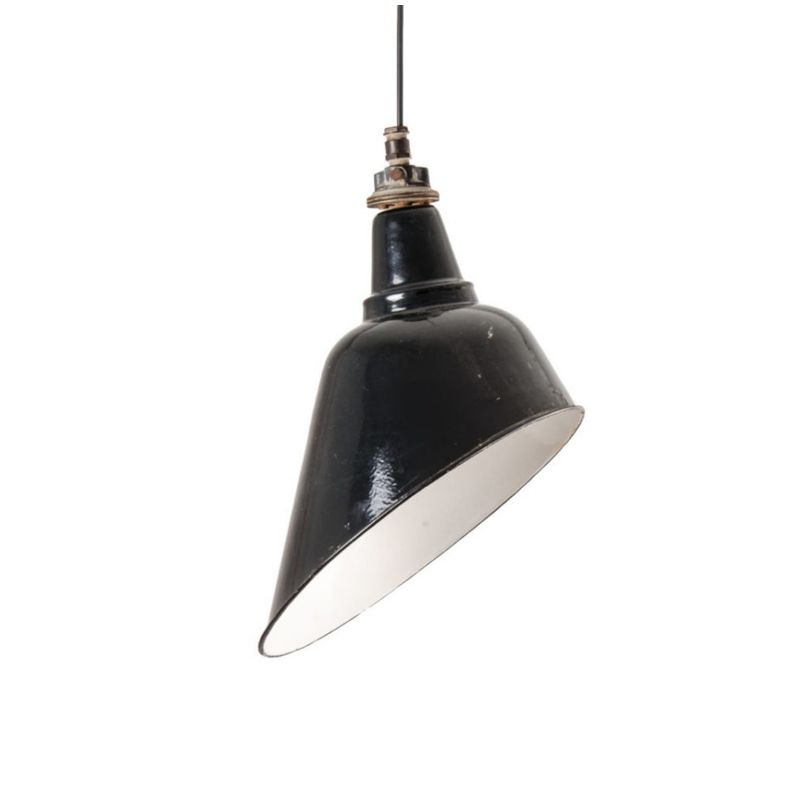Koen,
The picture as you marked it appears on my screen every time I visit this thread. Can't speak for others. But I'm guessing if you don't see it, neither does anyone else. What a shame. It reveals alot, especially in conjunction with your analysis.
Regarding your analysis, it is wonderfully lucid and after the first reading, I thought, well, that was simple. But then when I go back to your sketch an begin to think about what you said, it strikes me that what you were saying was massively distilled to essense (pure, uncut design, as a pusher might say) and coupled with Wegner's genius streak, well, its going to take me a bit of time to actually comprehend what you put so clearly and succinctly. I will grapple with it.
P.S.: Garlic serving sets, after you get done lasering in on their essenses, will, I suspect, never be the same. This is gonna be fun. 🙂
Hi Stephen,
Thank you for your comments. The reason why I have few doubts about Wegner's methods and about conciously applying them is that it is very much part of the kind of education we both benefited from. It is true that few designers record the process but that is to a large extend due to the assumption that every collegue designer knows more or less the same thing and that in fact appreciation by one's peers is based on the proper application of these methods. Recording it would indicate a certain uniqueness. I would not have done this either without the rather explicit invitation of DCWilson. I am sure that Wolfgang Von Wersin's "Das Buch vom Rechteck" (the book about the rectangle) is not a common design school library book anymore but Wegner most likely grow up with it. By the time I was in design school we had to learn the name of each of the rectangles identified by Von Wersin. Let me correct this. I did not learn these things in design school but in crafts school....so I share your concern that this kind of product analysis is probably not part of the design education anymore...maybe student participants can shed some light on this.
In preparing for my return to university (after having left 18 years ago) I have met with a number of my future collegues. They seem to identify two major problems in design education. The first one is the "eye on the price" mentality....to use an analogy, as most drivers, many students know where they want to drive to, but find that the ignition key, gazoline, and a few other basic necesities are just useless distractions. The other problem is the kind of students design educations are attracting. I have no problem with opening the design doors to all but apparently the knowledge about design for most students is design as depicted in the media. As a French design student visiting here expressed it: Most of my "collègues" want well-know designers as teachers and the first thing they ask them is "How can I get my ideas in the magazines" These expectations also fit another group of students that would in a more secure world choose fine arts over design, but general un-security often expressed in economical un-security makes them turn to design as a "safer" source of income...we are quite a bit away from Hans Wegner...but to some extend these student expectations obviously have an influence on the education itself. Thanks again for the comments.
Thanks
so much for that, Koen. It interests me to learn about design education (including craft education) that influenced our generation. The description of Wegner's method of composing that credenza, and its being perfectly within the orthodox routine, is amazing to a designer educated in America in the 'sixties; yet another example of Yankee "freedom and independence" ('I don't got to show you no damn rules'). . .?
Soren Koch, son of Mogens Koch, was a guest instructor at my school in 1962-3, I think; perhaps he found himself in the minority when it came to the matter of formal compositional pedagogy, there. We heard nothing of it, in any event. Now, clearly, it's too late. . .
As you say. . .we've drifted far from Wegner. How sad, if somehow not surprising, to learn that today's would-be "designers" are interested primarily in fame and fortune.
I might be as surprised as you are...
but it does not make me sad. Somehow I think it is a good thing for design to have this kind of large base/new generation/brainstorm. At least that's how I see the general picture. Very much like in brainstorming critical notes are not allowed (yet) nothing should be ruled out as impossible, silly or useless. No technical limitations, at least not yet, no hierarchy and experience does not mean anything etc. All the basic rules for a good brainstorm are there and basically that it was is done. It might be called "Front" in Sweden or "Big Game" in Belgium and Switzerland, "Droog" in Holland or any designer name you come across in the media. It all follows these basic brainstorming rules. Communication makes it possible to put all these "notes" on the web. I might not be around anymore when the game is called off with the ussual:"...now we have enough ideas..." but I am sure that time will come. Maybe "environmental considerations" are going to call everybody back to his or her desk...I do not know.
The other day I read a comment or a young designer. The journalist wrote,"I wish his chair could be manufactured..which is not the case yet, because I would buy one". There was a time that a chair that was difficult to produce was a bad design, and there was a time that design jounalists had something substantial to say other than I like it...but than again why not having this brainstorm. I just wish enough people will still be around that have the knowledge to make the ideas that survive the final selection viable.
Maybe what your are saying is that it is sad not to be part of their game...I sometimes feel the same, but there is a lot of satisfaction in being a well informed spectator!
Hmm. . .
Well, perhaps in the future anything can be made easily and discarded/recycled without regret, even while it is still warm. And everybody's ideas can be realized, not just those who now have access. And fame and recognition will be just as easy to acquire; now 15 minutes will be reduced to 15 seconds of world-wide exposure. With such short "design cycles," a few objects will gain semi-permanent status -- for a few days ? The display of "superior" objects at MoMA will be on a 24-hour rotation ?
Or is there another model ? Non-manufactured objects, rentable holograms of this hour's design icons ? I mean none of this pejoratively; it's just another set of future possibilities, variations on today's ways of being and doing. . .
SDR
Great Reply Proffesor Koen
I enjoyed what you wrote on the Hans Wagner chest. I have a George Nelson chest in my office and i applied what you said about Wagner to the Nelson chest built and designed around the same time I see some of the similar
principles that you talked about , I love Nelsons designs he is my favorite as my home is almost a shrine to George Nelson as i have close to everyone of his most famous designer pieces of furniture
in my collection , . I have never read anywhere that he was influenced by the Danish what do you think ? I see so much what you said about Wagner in Nelson or is it Nelson in Wagner ??????
The reason question and answer is so crucial to...
civilization is that we don't know what we don't know. The best question is not the one that exposes the best answer, but the one that exposes the most profound thing that you don't know.
You see Koen, and others like him, don't know what we don't know about how they do what they do. My years as a consultant taught me that what I knew was never the crux of solving any problem worth solving for a client. The best solutions came from discovering what the client didn't know that I didn't know. When I discovered that, THEN I could alter this or tweak that among what he already knew how to do better than most anyone and then the client was off and running and leaving me in the dust...hopefully with a check. Once we discover what we don't know, THEN we can get about the business of solving the procedural problems obstructing basically sound and experienced professionals doing great things for society (or evil if they've got black hearts).
I hound Koen with questions, not like a lawyer (i.e., lawyers are taught to ask only questions they know the answers to, because discovering what they don't know in court risks blowing the explanation of the crime they have already contrived), and not because I'm just looking for any old right answer. I could read any design text book and learn a million right answers. Rather, I'm trying to reveal what he doesn't know I (we) don't know; that gets to the deeper level of his mastery of technique. I wish I knew how to get to the still deeper level of his genius, so he could share it, but in my 18 years of working with some extremely brilliant clients and colleagues, I came to the conclusion that genius is simply rooted in the unique way one sees the world regardless of training. Genius is delicious, but it is icing and not cake. I am just trying to help him reveal what he doesn't know we don't know, not his genius. To do it, I am questioning him in the role of something even less than a student. I am the village idiot here. I am uniquely equiped to trigger the discovery of what he doesn't know we don't know. Why? Because I bring almost no assumptions or expectations (or utterly the wrong ones) from prior training, for I haven't any. I just have a nose for "it," and a shit detector for "about it." If I see "it," like Wegner's credenza, something so elegantly simple that it is "understood implicitly" by his particular legacy breed of mastercraftsmen, and so "it" that it is viewed as impenetrable genius by other highly talented designers from other legacies, I just ask the question as simply and naively as humanly possible and he just turns on the lights and starts.
Pt. 2
This is all pure luck of course. Five or ten years ago he probably wouldn't have had time for me. Five or ten years from now (maybe next week) he'll be on to something else. But man is it great while it lasts!
No one is probably more surprised to hear your responses of not ever having been taught what he has taken for granted all these years than he is. This is why IMHO the man has to teach. Teaching is the quickest way to discover what else he doesn't know we don't know. A village idiot can only do so much for this process. I can call attention to it, but it will take learned faculty with eager, open minds (something often in unfortunately scarce supply in academics) and bright, inquisitive students to really expose what he doesn't know we don't know, an in some usefully systematic way.
Sometimes life is grand.
Shame on me to...
compare your lines with the only intelligent words Rumsfeld ever said about the un-known known, the known known, the un-known known etc...but it just reminded me about that.
But you are so right (not about my genius by the way) about the hurdle that is not to know what others do not know and the challenge to find out. I should concentrate on that last part.
Thank you so much for your comments!
If you need any help, please contact us at – info@designaddict.com









